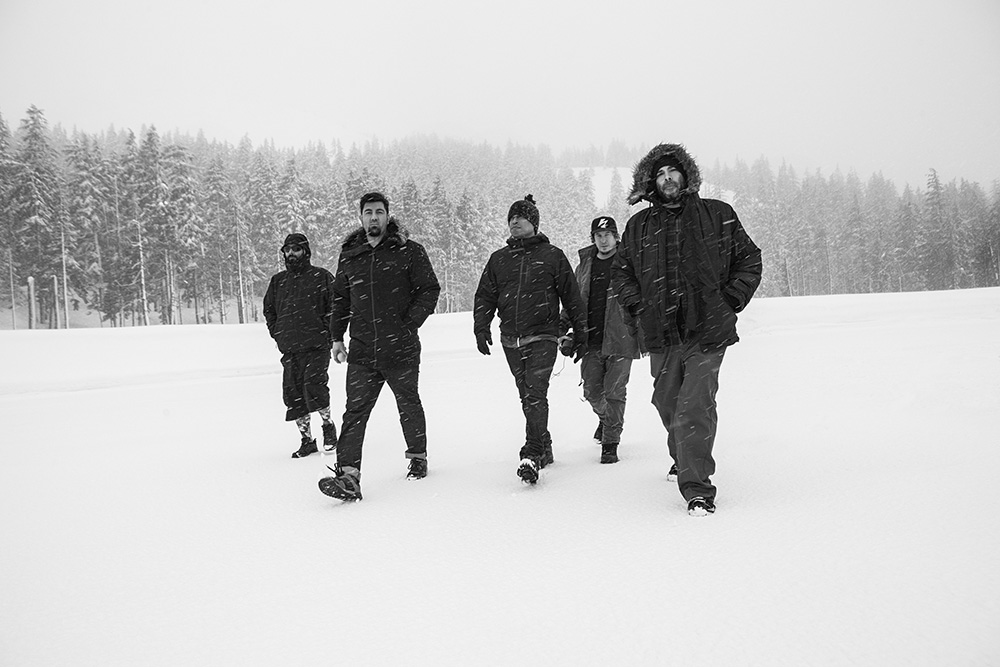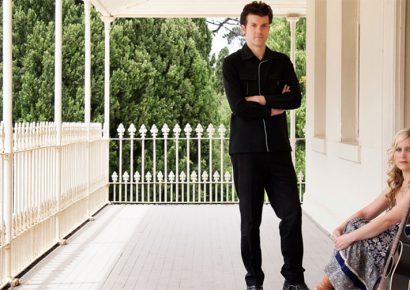“Quicksand and Deftones go back to like 1995,” he recalls. “We met back then and hit it off because even though we were from different … well, different subscenes I guess, we weren’t from entirely different worlds. We had a real mutual taste in a lot of bands, and had a similar energy we were putting into everything. We really clicked on our first Warped tour. Quicksilver had formed a while before we opened for that tour, but we’d been kind of bumming around but not really. We’d been working on a record for a long time, and we wound up touring with them and that kind of wove us all together. After that we just stayed friends. I filled in for Chi in ‘99, and it’s really because we’d always been around each other and knew each other so well musically.”
Although Vega has been embraced whole-heartedly by both the band and fans, his introduction to the line-up was born of a tragic accident when Chi Cheng was left in a coma after a car accident in 2008; he passed away five years later. Vega’s reflections on the band and the way they sound today are peppered with references to Cheng, and while he is in no way trying to emulate his friend’s playing style, the essence of his influence is worn quite proudly.
“I think there’s definitely…” Vega pauses, searching for words. “I mean, even the way I play bass to the way I play guitar is way different. With Deftones, there were more similarities between Chi’s approach and my approach, as far as modality goes. Not so much tone, but we had a similar pattern where we’re both really cheating off a lot of reggae, leading with melodic rhythm lines, cutting across things and doing things that are really cool without being flashy. I think that our friendship was the foundation for that, and made that crossover to the Deftones stylistically feel a lot more natural. I’d be playing stuff traditionally but also thinking, well, how would Chi play a riff? Trying to imagine ideas that would be coming from the way that they play. But again, it all felt really natural, it wasn’t something that I really set out to do. It’s something that I noticed just happened, which I think comes from just wanting to make people excited by what you’re playing.”
I admit I was late coming to the Deftones game, only really catching onto the band around the time of Diamond Eyes in 2010. That said, even without being a devout fan, that sense of excitement about their new material is clearly evidenced here. It is a varied, heavier beast, and is legitimately showing a band at the height of their strengths. First single ‘Prayers/Triangles’ has already begun doing the rounds and has led to great anticipation for the shape of Gore, but my own money is on the song, ‘Doomed User’.
“Something that happened with this process was that we had a lot more material. We had a lot of things that didn’t really qualify as a true song; they didn’t have beginnings, middles and ends. ‘Doomed User’ developed a while back. We went out to go visit Stephen’s studio. Abe and I were jamming on, so we’d kind of started writing for the album before we’d started really writing. Then Stephen was adding to it, we’d all take ideas and make alternate versions, different riffs. From there we put it on ice for a long time, and later it just popped back up when we were scanning over old ideas. We had a nice playlist of all these bits and pieces and that was one of them, this song that was only halfway there. But it had something we all liked, so we brought it home.” Before we go our separate ways, I have to ask Vega about the cover art for Gore. It is an incongruous image – a flock of flamingos against a pale grey sky – yet resonates quite deeply with Deftones’ character. “It’s about an emotional reaction, it’s not something that should be too cerebral. The birds are kind of beautiful but also kind of mean, and sitting in the center – and it’s really because of the balance, having a four-letter word sitting there, Gore – having that word and what it means up against that imagery, that movement. I think it really represented what the Deftones are. It’s not something you can directly explain, but it is something you can feel quite clearly. Things can be heavy and pretty at the same time, things can be fast and extreme but also seem very smooth. It plays with extremes, which I think is really a detail of ourselves and our music. That image really captures that in a way.”
Gore is out now via Warner Music.
For more details, head to deftones.com.

